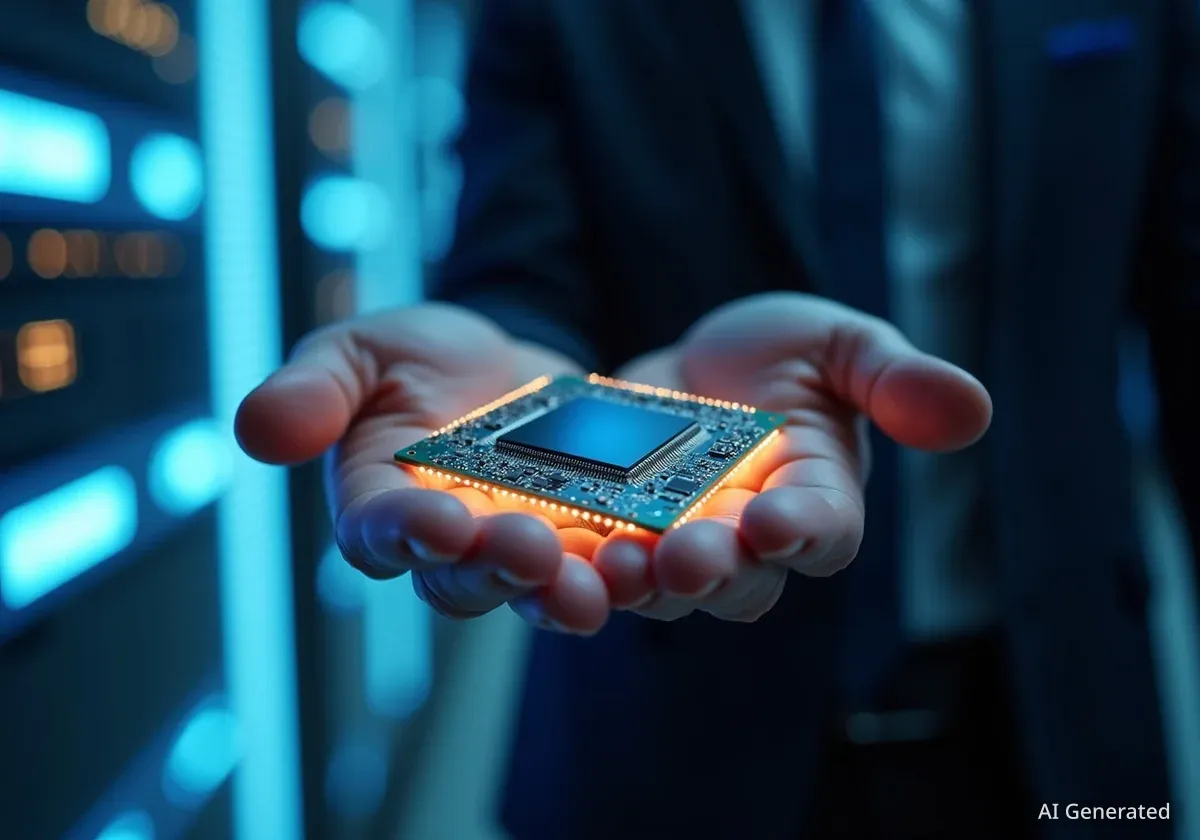Nexus AI, a leader in generative artificial intelligence models, has announced a definitive agreement to acquire Quantum Leap Devices for approximately $2 billion. The acquisition marks a significant strategic shift for Nexus AI, moving the software-focused company into the specialized hardware sector to create integrated AI systems.
The all-cash transaction is expected to close by the end of the fourth fiscal quarter, pending regulatory approvals. This move positions Nexus AI to compete directly with vertically integrated tech giants by controlling both the software and the underlying hardware that powers its AI platforms.
Key Takeaways
- Nexus AI will acquire hardware firm Quantum Leap Devices in a $2 billion all-cash deal.
- The acquisition signals Nexus AI's strategic entry into the specialized AI hardware and semiconductor market.
- Quantum Leap's energy-efficient chips are expected to optimize Nexus AI's large language models.
- The deal aims to create fully integrated hardware and software solutions, improving performance and reducing operational costs.
A Strategic Shift into Hardware
Nexus AI's acquisition of Quantum Leap Devices represents a fundamental change in its business model. Historically, the company has focused exclusively on developing and licensing its advanced AI software, relying on third-party hardware from major chip manufacturers.
By bringing hardware design in-house, Nexus AI gains control over the entire technology stack. This integration is expected to allow for deeper optimization between its AI models and the processors they run on, a strategy successfully employed by other major technology firms.
"This is a pivotal moment for Nexus AI," said CEO Dr. Evelyn Reed in a press release. "By uniting our pioneering AI software with Quantum Leap's revolutionary hardware, we can unlock new levels of performance and efficiency that are simply not possible in a fragmented ecosystem."
The move addresses growing concerns over the immense energy consumption and computational costs associated with training and deploying large-scale AI models. Quantum Leap's technology is specifically designed to tackle these challenges.
The Technology Behind Quantum Leap Devices
Quantum Leap Devices, a startup founded just five years ago, gained industry recognition for its unique chip architecture. The company's processors are designed to handle the specific computational demands of AI workloads with significantly lower power consumption compared to traditional CPUs and GPUs.
Performance Metrics
According to internal benchmarks from Quantum Leap Devices, their latest chip generation offers a 40% improvement in performance-per-watt for AI inference tasks compared to the current market-leading hardware.
This efficiency is critical for Nexus AI, whose flagship models require massive data centers to operate. Reducing energy costs and improving processing speed are key to making their AI solutions more scalable and commercially viable for a wider range of applications.
Key Innovations of Quantum Leap
- Neuromorphic Design: The chips mimic the structure of the human brain, making them highly efficient for parallel processing tasks common in AI.
- Low-Power Architecture: Focuses on minimizing energy use, which reduces both operational costs and environmental impact.
- Scalability: The architecture is designed to be scaled from small, edge-computing devices to large data center installations.
Market Implications and Industry Reaction
The acquisition sends a clear signal to the broader technology industry. It underscores a growing trend where leading AI companies are seeking to reduce their dependence on a small number of third-party chip suppliers.
Analysts believe this vertical integration strategy could give Nexus AI a significant competitive advantage. By tailoring hardware to its specific software needs, the company can potentially accelerate innovation cycles and offer more powerful, cost-effective products to its customers.
The Competitive Landscape
Major tech companies have been investing heavily in custom silicon for years. This acquisition allows Nexus AI to join an exclusive group of firms that control their own hardware destiny, reducing reliance on external supply chains and gaining a performance edge through co-design of software and hardware.
The deal is expected to intensify competition in the AI chip market. Existing semiconductor giants may now face a new, formidable competitor that has a deep understanding of AI software requirements. The pressure will be on to innovate and offer more specialized solutions to retain other major AI clients.
Future Roadmap and Integration Plans
Following the acquisition's close, Quantum Leap Devices will operate as a wholly-owned subsidiary of Nexus AI. The company's co-founders, Dr. Ben Carter and Dr. Alisha Khan, will lead the new hardware division, reporting directly to Nexus AI's CEO.
The immediate priority will be to integrate Quantum Leap's chip technology into Nexus AI's next-generation data center infrastructure. The company plans to deploy the new hardware to power its upcoming 'Prometheus' AI model, which is slated for release in late 2025.
In a joint statement, Carter and Khan expressed enthusiasm for the merger. "Joining forces with Nexus AI provides us with the resources and scale to fully realize our vision. Together, we will build the most efficient and powerful AI systems in the world."
Nexus AI has also indicated that it will continue to support Quantum Leap's existing customers during a transitional period. However, the long-term plan is to prioritize the development of custom hardware exclusively for Nexus AI's internal and commercial product lines.





